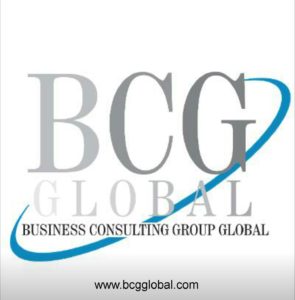The Current Hospitality Scenario: Competition, Upswing, Marketing
The international hospitality industry is anything but kind. For a very long time, there was next to no innovation in this field, but the arrival of technology-fueled on-demand economy has dramatically changed that. Airbnb’s appearance on the scene was an indicator of this change, along with the rise of boutique hotels. Soon, even traditional restaurant chains began experimenting, growing, acquiring and by consequence, innovating intensely.
This brings us to the current hospitality scenario. Although it continues to be a brutal, unyielding, and fiercely competitive industry, the path to success is now multifaceted. There isn’t one formula that applies to all and hotels no longer have to subscribe to hard and fast rules. Technology plays the role of a grand equalizer, giving even the smallest player a fighting chance to survive.
UPSWING
Around the world, the travel, tourism, and hospitality sectors remain a key for economic development and job creation. In this economy where transport has become more affordable and country borders are blurring, it is fair to assume that travel and tourism will remain a dominant sector for the near, and far, futures.

Consider these statistics:
- In 2016, Travel & Tourism contributed US$7.6 trillion to the global economy and supported 292 million jobs.
- This revenue generation comprises 10.2 per cent of the world’s GDP.
- 1 in 10 of all jobs can be attributed to the Travel & Tourism Industry.
- At 77 per cent, leisure travel made up a chunk of people’s spending. In comparison, corporate and business travel accounted for the rest of 23 per cent.
- Domestic travel (at 72 per cent) was higher than international travel.
- The entire contribution to the GDP was boosted by 3.1% in 2016.
- By 2027, this sector is likely to account for 11.4 per cent of the global GDP, and will support more than 380 million jobs globally. Of course, this indicates that this sector will outperform the global economy.
There is little doubt that companies like Airbnb are competing head-to-head with hotels in certain segments of the market. This implies that a part of the business may be additive, as travelers are taking more trips (and longer ones, too) than they would without the option. However, what is important is that private accommodations have altered consumer expectations on a fundamental level, by redefining what and where a hotel is.
COMPETITION
The competition in the hospitality industry is a result of two aspects:
- Technological adaptation
- Changing customer profile
Technological Adaptation
Like I said before, technology has leveled the playing field, and contributed to various facets of the industry, including branding, communication, and outreach. In particular, three particular trends are
going to reshape the hospitality industry in the coming years. Let’s look at each on them individually.
A Mobile-First Approach
In emerging markets around the world, 1 billion people are expected to come online globally. Most of these will be customers who will experience their entire guest lifecycle on their smartphones. Hospitality and travel companies have no choice but to invest in mobile friendly and mobile-first guest engagement and retention strategies.
In any case, customers are always looking for that ‘personalized’ experience and leveraging innovative mobile tech the way AirBnb and Uber have will be key when it comes to brand differentiation and experience. Hotels will have to offer booking functionalities, lightning fast operations, and other touchpoints for the entire customer journey on mobile phones for the convenience of their clients.
Connectivity
With internet access becoming nearly limitless to digital natives and non-natives alike, connectivity is only poised to increase. Besides, with the proliferation of connected devices and wearables in the market, hotels will have to get innovative when it comes to new ways of interacting and engaging with the consumer. Virtual reality tours, augmented reality interactions, robotics, and AI will drive the market and poise it for yet other travel experiences that can be vicariously delivered.
Machine Learning, Big Data and Analytics
Tapping into big data allows for the creation and curation of an extensively personalized experience for every type of consumer. A lot of marketing campaigns can be leveraged seamlessly, and monitored keeping tangible numbers in mind for growth and further optimization.
It also speeds up existing processes like customer service, feedback collection, email automation, and customer engagement. Furthermore, it can also facilitate upscaling and downsizing the business according to company goals.
Changing customer profiles and brand experience
The tourism industry is witnessing a change in the psychographic and demographic profiles of travelers. Along with Gen X travelers, there’s a fresh influx of millennials, whose expectations and lifestyle are setting completely different standards for industry performance.
Customer experience is currently the most dominant brand differentiator. It will also drive customer loyalty and referrals and hotels will be needed to synthesize more targeted, personalized, and intricate loyalty schemes than ever before.
This personalization and differentiation also extends to the kinds of experiences that you create. The ‘home away from home’ concept does away with the homogenization of luxury, which was the tried and tested paradigm earlier.
Now, to provide unmatched service, rooting the hotel in its local climate while also giving experiences beyond the conventional hotel space, has become an important factor. The millennial demand for organic food and sustainable options also creates more vulnerabilities when it comes to risks and food safety, which needs to be monitored by hotel owners.
Travel brands have also been left behind by non-travel brands which have pampered the customers by providing heightened levels of service. Amazon, Starbucks, and Uber are a few names that millennials hold in high regard, and competition will only intensify as customers begin to expect the same out of every service provider, especially the hospitality industry player.
Marketing
This brings us to the last point – marketing for this new-age consumer. Hospitality sales, as it is, are different from other consumer goods. This is because both the tangible and the intangible products have to be sold by the player. Success, then, hinges more on providing marketing ‘services’ rather than simply prodding the consumer into buying what you’re offering. It’s important to create the right brand image that encourages trust, and furthermore, conversions.

A consistent brand identity also becomes more important as customers have several fronts on which they can engage your brand. Your active presence on social media becomes very important as a portal for customer engagement.
Customers can also research and evaluate you better thanks to portals like TripAdvisor and Yelp. Reviews and recommendations of a friend or an influencer suddenly become very important determinants for growth in sales. In addition to providing stable revenue flow, repeat customers can become influencers in their own right.
Leveraging all the tools and technologies that come with digital marketing is not only the need of the hour, it is much cheaper and fine-tuned to customer preferences. Email and content marketing are now intimately tied in with SEO, and brand visibility over the net. Most of these marketing efforts go into carefully creating, curating, and maintaining brand identity and image. Continuously engaging the customers with new-age best marketing practices, in addition to supplying an invaluable experience will be what takes you above and beyond your competition.
The sector is extremely profitable at this point, and is poised for immense growth and favorable amounts of investment. If you’re an existing player that isn’t performing very well, or a new player looking to make a significant dent in the industry, keeping all these points in mind will give you significant advantage over your competition.
Ram Gupta, the author is a hotel management graduate from India and Germany; He is a certified Hotel Administrator from U.S. and MIH from U.K. He has over 40 years of sound experience in the Hospitality, real estate industry in India, Dubai, U.K, Europe and Japan and is well versed with all areas of business including acquisitions, mergers, joint ventures, diversification, strategic planning, development and operations. He has been associated with over two dozen luxury and boutique hotel projects and has launched two hotel chains in India. He is currently an independent hotel consultant and could be contacted at ramgupta@bcgglobal.com. Website: www.bcgglobal.com


